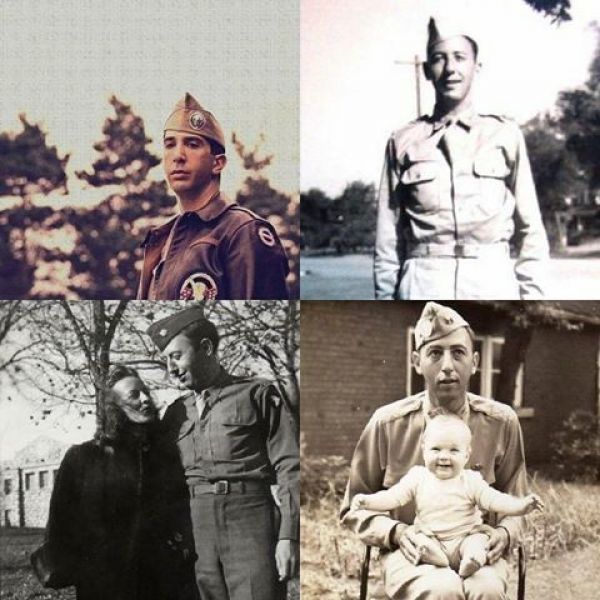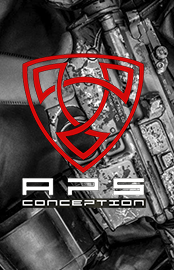5 Little Known Facts about Easy Company “Band of Brothers”
.jpg)
HBO’s “Band of Brothers” mini-series was aired in 2001. Since that time, the series has, if anything, gained in popularity. This is partly due to later generations having greater access to the series through the internet, Amazon Video, DVD boxsets, and so on.
Many people know that the mini-series was based on the best-selling book of the same name by the popular historian, Stephen Ambrose, published in 1992.
Scroll down for the documentary
The real “Band of Brothers” existed long before the book. They were the men of E Company, 506th Parachute Infantry Regiment, 101st Airborne Division (the 506th PIR). These men joined with millions of others in uniform in answering the call of their nation.
 Dick Winters
Dick Winters
However, like any elite force, the members of the 506th (and others in the Airborne Division) wanted to be the best, and serve with the best. The same holds true for members of the Marines in WWII, and the men and women of elite forces today.
Below are some little-known facts about the men of Easy Company and the series that told their story.
 The original “Band of Brothers” Sgt Carwood Lipton. (Right center).
The original “Band of Brothers” Sgt Carwood Lipton. (Right center).
Speirs
Captain Ronald Speirs retired from the military after a career spanning parts of three decades. Before serving in the 506th PIR, he led B Company before the invasion of Normandy and then D Company during the attack.
Because of the book and the series, most people know that Speirs played a part in the famous attack on Brecourt Manor, which knocked out a unit of German cannon that had been firing on nearby Utah Beach.
 Captain Ronald Spiers – real vs. reel.
Captain Ronald Spiers – real vs. reel.
He became the E Company commander during an attack on Foy, Belgium which occurred during the Battle of the Bulge. He replaced an inept commander. For those who have watched the series but not read the book: he did indeed run through enemy fire and a mess of German soldiers to coordinate the attack.
He also came back the same way, under fire. However, it is unlikely that he killed the American sergeant and platoon of German POWs as hinted at in the series.
 Ronald Speirs in Austria in 1945
Ronald Speirs in Austria in 1945
Speirs remained in the army after the war and was one of a handful of men to have made combat jumps in both WWII and Korea. In 1951, he dropped behind retreating North Korean troops as a rifle company commander in Operation Tomahawk. Speirs and his men killed 50 enemies during the operation.
He served in various capacities during the conflict, including as company commander and staff officer.
One “claim to fame” that is almost unknown came after he served as liaison officer to the Red Army in the mid-1950s. The German prison of Spandau near Berlin housed a very important prisoner: former Deputy Fuehrer, Rudolf Hess, who had flown to England on a strange mission in 1940.
 Spandau Prison in 1951
Spandau Prison in 1951
Ostensibly, he had intended to foster peace between England and Germany, but he was disavowed by Hitler and not trusted by England. As a result, Hess was kept in prison on charges of war crimes from the end of the war until he died in 1987. Others, including Albert Speer (former Minister of Munitions, and Hitler’s favorite architect) were also kept there for at least part of their sentences.
The commandant of the prison was a rotating position. Each of the major WWII powers would take a turn. In 1958, it was Speirs’s turn. He had learned Russian after Korea, and his language skills were seen as a great advantage to the post.
 Rudolf Hess – Bundesarchiv Bild 146II-849 CC-BY-SA 3.0
Rudolf Hess – Bundesarchiv Bild 146II-849 CC-BY-SA 3.0
He also had a long reputation of being a “no-nonsense” kind of guy. Albert Speer mentioned Speirs in his infamous memoirs as the “irritating American commandant.”
After that assignment, Speirs served as US military liaison to the Royal Lao Army just before American involvement in Southeast Asia grew into the Vietnam War. He retired from the army in 1964 as a lieutenant colonel.
 Ronald Speirs
Ronald Speirs
Blithe
Albert Blithe is mentioned in Ambrose’s book on three pages. The famous incident in which he loses his eyesight is mentioned, as well as his taking point during one of Easy Company’s patrols in Normandy.
In that patrol, Blithe was shot in the neck. This occurred both in the series and, more importantly, in real life.
 Blithe at Camp Toccoa in 1942
Blithe at Camp Toccoa in 1942
However, in an example of incredibly lax research, the producers of the series got Blithe’s fate horribly wrong. Reading Stephen Ambrose’s book, it would be easy to see why someone assumed that Blithe died. The last mention of the man reads: “A German sniper put a bullet into his neck.”
That’s it. At the end of the episode entitled “Carentan,” words come up to tell the audience that Blithe never recovered from his wound and died in 1948.
In fact, Albert Blithe survived WWII, although he spent the rest of the war in a hospital and rehabilitation centers. He even went on to serve in Korea.
 Mark Warren portrayed Blithe
Mark Warren portrayed Blithe
After a brief civilian career at Westinghouse, Philadelphia, Blithe went on to make a solid military career for himself. He rejoined the military and was stationed in Korea but after the war had ended. He served with the 187th Regimental Combat Team. He was then posted to Taiwan as part of the US military contingent there in the 1950s and early 60s.
Another matter the producers got wrong was that Blithe didn’t have a Southern accent: he was from Philly, just like Guarnere and Heffron. What’s weirder still is that he was played by an English actor, Marc Warren, who has no natural American accent.
 William ‘Wild Bill’ Guarnere
William ‘Wild Bill’ Guarnere
In December 1967, effectively 19 years after he was supposed to have died according to Hollywood, Albert Blithe was serving in Germany. He had just returned from ceremonies commemorating the Battle of the Bulge when he started feeling ill.
He was taken to the hospital where he passed away due to complications from a perforated ulcer on December 17, 1967. He is buried at Arlington National Cemetery.
Heffron the Actor
 Wild Bill and Babe
Wild Bill and Babe
Edward “Babe” Heffron, along with “Wild Bill” Guarnere, was from Philadelphia. The two of them became fast friends. After the release of the series, Babe and Wild Bill were often seen together, leading tours of the famous battle sites featured in the series.
They also appeared as guest speakers at military gatherings and other groups, as well as on many TV shows about E Company.
In the series, Babe was played by Scottish actor, Robin Laing, who was acclaimed for his role. However, Laing is slight in appearance and has a gentle face. Look at a picture of Babe from WWII, and you’ll see that Heffron looks like a tough guy — which he was, more so than almost any of the other men in E Company.
.jpg) Babe Heffron
Babe Heffron
To be fair though, he was also a friendly easy going guy to his friends and those he met on his travels.
The real Babe can also be seen in the series. He has a cameo as an older Dutchman drinking wine during the liberation of Eindhoven by US and British troops.
 Edward ‘Babe’ Heffron
Edward ‘Babe’ Heffron
Sobel
Captain Herbert Sobel was played by Friends star, David Schwimmer. Most of the men of E Company were in agreement after the series was made that Schwimmer had that character down.
Sobel was thoroughly hated by the men of E Company. He was truly “chickens**t,” a name soldiers use for a superior who not only goes by the book but attempts to write their own chapter of it.
 Captain Herbert M. Sobel
Captain Herbert M. Sobel
The part in the series about the spaghetti was true. Sobel waited until the men had chowed down on immense quantities of pasta before ordering them up Mount Currahee. Just like in the series, the men puked their guts out.
And yes, Sobel actually did yell “Hi-yo Silver!” He revoked passes, fined men, pitted them against each other and other companies.
 David Schwimmer – Phillipe Berdalle CC BY-SA 2.0
David Schwimmer – Phillipe Berdalle CC BY-SA 2.0
Despite all that, in Ambrose’s book, many of the men credit Sobel’s training regimen with keeping them alive during their first days in combat. Though they referred to him during and after the war as “Him,” because they disliked even saying his name, nevertheless they gave him credit for toughening them up, likely more so than the other companies of the 506thPIR.
Sobel was not a combat officer. He couldn’t navigate and his men hated him, making a real possibility of an “accident” at the front. He was assigned to a training battalion and then became a supply officer.
 Currahee Mountain in Georgia
Currahee Mountain in Georgia
After the war, Sobel settled down and had a family. However, he couldn’t seem to shake what he saw as the disgrace of being removed from combat. He had to tell people that he had served in the famed 101st Airborne, but had never seen action. He was an unhappy man who left an unhappy legacy.
In 1970, he attempted suicide but survived. Unfortunately, the failed attempt left him blind. He was sent to a VA facility in Illinois where he lived the rest of his days until he died from malnutrition in 1987. He had no funeral.
 Herbert M. Sobel
Herbert M. Sobel
“Why We Fight”
This is the title of the ninth episode of the series. Much of the episode concerns the liberation of a small concentration camp that the men of the 506th PIR find while on patrol in Germany. Entering the camp, they discover that the SS has just left, killing many of the inmates. Those remaining in the camp are starving and disease-ridden.
Captain Winters orders that medical care, food, and water are given to the inmates. However, with the arrival of the battalion commander and medical staff, the men of E Company have to return the prisoners to the camp.
 Major Dick Winters Captain Lewis Nixon & Lieutenant Harry Welsh Austria 1945
Major Dick Winters Captain Lewis Nixon & Lieutenant Harry Welsh Austria 1945
This was so the inmates didn’t wander and spread disease, and also so they could receive care. Later on in the episode, German civilians are forced to bury the victims so that they can see with their own eyes the true nature of the Nazi regime.
There is one major problem with this: Easy Company never liberated a camp. This is stated by Sergeant Don Malarkey in his book Easy Company Soldier: The Legendary Battles of a Sergeant from WWII’s “Band of Brothers” published in 2008, and other E Company veterans said the same.
 Members of the 101st Airborne.
Members of the 101st Airborne.
The reason as to why this extra was included was because the producers wanted to convey the horror of the war in Europe, not just E Company’s experiences.
So they incorporated into the series experiences from other units, especially scenes involving the liberation of camps, in an attempt to convey to the audience the real horror that the soldiers and civilians encountered almost daily.









